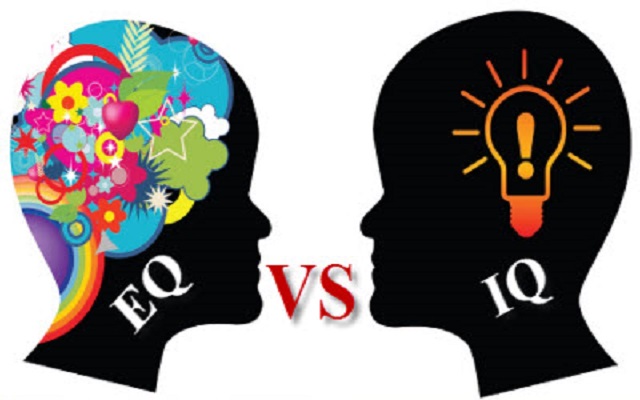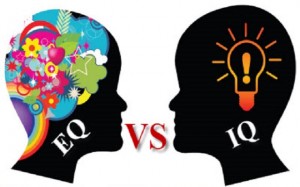When it comes to success in life and business, ‘emotional intelligence’ (EQ) matters just as much as – if not more than- ‘intellectual ability’ often referred to as Intelligence Quotient (IQ).
Most of us are familiar with the term ‘IQ’ which is a score received from standardized assessments designed to test intelligence. It relates directly to intellectual pursuits such as the ability to learn as well as understand and apply information to skill sets. Your IQ can help you get into a higher school of learning as it covers logical reasoning, word comprehension and math skills. But intellectual intelligence isn’t enough to be successful in life as there are many people who are academically brilliant but are socially inept and unsuccessful at work or in their personal relationship. So, what other thing do you need to be successful as a leader and as a person?
Daniel Goleman, a psychologist and the author of the New York Times bestseller ‘Emotional Intelligence’ said, “When I compared star performers with average ones in senior leadership positions, nearly 90 percent of the difference in their profiles was attributable to emotional intelligence factors rather than cognitive abilities.”
So, what is emotional ‘intelligence’ quotient (EQ)? Why is it more important than IQ? What does it entail and how do you build it?
Emotional intelligence (EQ) is defined as the ability to identify, use, understand, and manage emotions in positive ways to relieve stress, communicate effectively, empathize with others, overcome challenges, and defuse conflict. It impacts different aspects of your daily life, such as the way you behave and the way you interact with others. If you have high emotional intelligence; you are able to recognize your own emotional state and the emotional states of others, and engage with people in a way that draws them to you. You can use this understanding of emotions to relate better to other people, form healthier relationships, achieve greater success at work, and lead a more fulfilling life.
EQ basically consists of four basic attributes:
1. Self-awareness
2. Self-management
3. Social awareness
4. Relationship management.
As a leader, you will need self-awareness to recognize your own emotions, strength and weaknesses and how they affect your thoughts and behaviour. Self-management will enable you to control impulsive feelings and behaviours, manage your emotions in healthy ways, take initiative, follow through on commitments, and adapt to changing circumstances. Social awareness will enable you to understand the emotions, needs, and concerns of other people, pick up on emotional cues, feel comfortable socially, and recognize the power dynamics in a group or organization, while relationship management will help you know how to develop and maintain good relationships, communicate clearly, inspire and influence others, work well in a team, and manage conflict.
If you think you are not doing very well in the area of EQ, there is no cause to worry as EQ can be easily built according to Travis Bradberry, another emotional intelligence researcher. He identified a few easy ways to build up your EQ. They include: being self-aware of your strengths and weaknesses, practicing self-confidence, letting go of mistakes, neutralizing toxic people and being compassionate.
In a subsequent article, we will look at why emotional intelligence is so important and how we can boost our EQ by mastering a few key skills.
About the Writer: Chris Bamidele is a passionate and unapologetic Nigerian, who believes in God and humanity. He is a writer, blogger, and an aspiring Television Director; and an optimist to the core. He blogs at www.chrisbamidele.wordpress.com and tweets @Chrisbamidele


